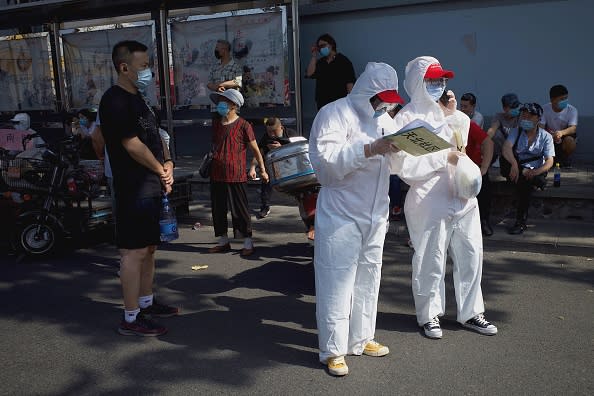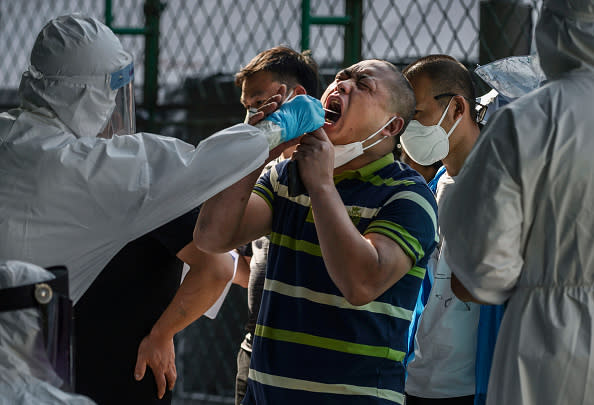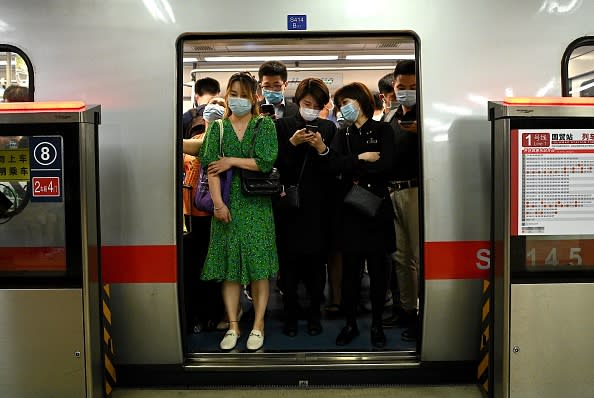'Extremely severe': Virus resurgence sees city raise lockdown level
China has been forced to raise the coronavirus emergency level in Beijing from second to third after a fresh cluster of COVID-19 cases were reported in the city.
The latest increase in infections in the Chinese capital was first reported on June 11 after a 52-year-old man tested positive.
Later, dozens of more cases were confirmed, most of which were linked to major wholesale market Xinfadi in Beijing's Fengtai District.

Chen Bei, the deputy secretary-general of the Beijing municipal government, told reporters on Tuesday (local time) cases related to the Xinfadi market are increasing daily in “double digits”.
“The situation of the outbreak has become extremely severe,” she said.
“Therefore, under the guidance of the expert team from the National Health Commission, we have recently organised experts to assess the development of the outbreak.”

Prevention and control measures will be adjusted accordingly, the official acknowledged.
Level three means heavier policing on disease control, according to state-run newspaper The Global Times.
All students living in Beijing will now be taught online and residents can’t leave their neighbourhoods and must undergo tests.
Medium and high-level risk areas for the virus are also being shutdown with visitors no longer allowed to enter.
“The control over travelers entering or exiting Beijing will be increased,” Ms Bei said.
“People entering Beijing from abroad will have to be quarantined and take a nucleic acid test. Related personnel of medium- or high-risk areas, as well as those connected with Xinfadi Wholesale Market, are forbidden to exit Beijing."
Beijing health authorities reported 27 new COVID-19 cases on Tuesday, taking the city's tally to 106.
Imported seafood products like salmon were removed from markets because the novel coronavirus was said to be found on one cutting board that was used to handle imported salmon in the Xinfadi market.
Not another Wuhan
Wang Guangfa, a respiratory expert at Peking University First Hospital in Beijing, told The Global Times the city won’t turn into Wuhan.

Wuhan is believed to be the epicentre of the global outbreak of COVID-19.
“So far, the new cases have been linked to the Xinfadi market and have not spread widely. Beijing immediately tracked and controlled the outbreak after the initial cases were found, which played a role in preventing the spread of the epidemic,” Mr Wang told the paper.
On June 13, the Chinese capital closed Xinfadi, placed 11 nearby residential communities on lockdown, and rolled out mass nucleic acid testing to curb the virus's spread.
with Reuters
Do you have a story tip? Email: newsroomau@yahoonews.com.
You can also follow us on Facebook, Instagram and Twitter and download the Yahoo News app from the App Store or Google Play.



